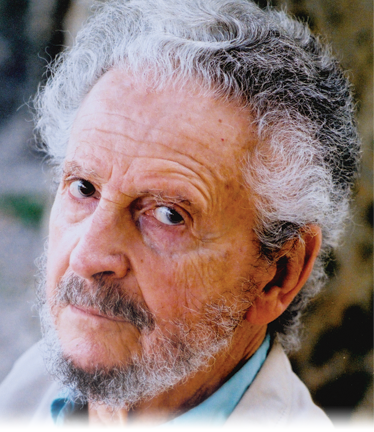Association for Psychological Science Citation for William James Fellow Award
David Premack's contributions have advanced psychological science's comparative understanding of cognition, and its understanding of the nature of animal and human minds. Premack's powerful analyses have illustrated cognitive similarities and differences across a diverse array of minds.
At each stage of his career Premack has tackled deep questions that are at the heart of psychology. His initial studies revolutionized understanding of the nature of behavioral reinforcement. In what became famous as Premack's principle, he showed us a surprising answer to the question "what is reinforcing?" The answer was that reinforcers are relative, revealing that the nature of reinforcement was more dynamic and subtle than many had believed.
Premack's most famous contributions stem from his groundbreaking studies on comparative cognition and symbol use in chimpanzees. He leapt over sterile debates on language capability to probe more directly just what actually are chimpanzees' cognitive symbolic and reasoning capabilities in a variety of domains. Premack's often-ingenious experiments provided fascinating insights into the minds of our closest primate relations.
In one of his most broadly influential steps, Premack introduced the concept of theory of mind, which refers to the ability to infer the mental states of other individuals (intentions, beliefs, desires). Theory of mind quickly spread to shape research in human developmental psychology, clinical psychology, and cognitive science, in addition to comparative psychology.
Premack's most recent research contributions, with wife and colleague Ann Premack, have focused on understandings of intentionality and causality cognition in human infants and children. Their work facilitates comparison of cognitive achievements both across the span of early human development, and between young humans and other primates.
David Premack's experiments are consistent for their creativity and originality. His studies have delivered over 50 years of illuminating results that carry great theoretical importance for psychology.
David Premack

Personal:
Born: October 26, 1925,
Aberdeen, South Dakota
Married, three Children
United States Army: 1943-1946
Education:
University of Minnesota, Minneapolis
B.A. Magna cum laude, 1943
M.A. 1951, experimental psychology and statistics
Ph.D. 1955, experimental psychology and philosophy
Employment:
Instructor, University of Minnesota,
Minneapolis, 1953-1954
Research Assistant, Yerkes Laboratories of Primate Biology
Research Associate Professor,
University of Missouri, Columbia, 1955-1964
Visiting Associate Professor,
University of California, Los Angeles, 1964
Professor, University of California,
Santa Barbara, 1965-1975
Visiting Professor, Harvard University,
Cambridge, 1970-1971
Professor, University of Pennsylvania, 1975-1990
Visiting Scientist, CREA,
École Polytechnique, 1990-Present
Fellowships: (selected list)
Ford Foundation Fellow,
University of Minnesota, 1953-1954
Fellow, Center for Advanced Study in the Behavioral Sciences, Stanford, CA. 1973-1974
Fellow, American Association for Advancement of Science,1963
Member, Society of Experimental Psychologists, 1975
John Simon Guggenheim Fellow, 1978-1979
Visiting Scientist Program of Japan, 1979
Fellow, Van Leer Jerusalem Foundation, 1980
Fellow, Institute of Advanced Thought, Berlin, 1983-84
Member, Scientific Board, Fyssen Foundation, Paris, 1989-97
Associate, Neurosciences Research Program,
La Jolla, CA 1990
Additional Selected Honors:
Memorial Lecture, Kyoto University, Japan, 1973
Kenneth Craik Research Award,
St. John's College, Cambridge University, 1987
Fyssen Foundation International Research Prize, Paris, 1988
Wilder Pennfield Memorial Lecture,
Montreal Neurological Institute, Canada, 1989
College de France, Lectures and Medal,
Paris, 1991
Wolfgang Kohler Memorial Lecture,
Dartmouth College, Hanover, VT, 1995
George Miller McDonnell Lecture, Cognitive Neuroscience Society, San Franciso, CA, 1996 Association for Psychological Science,
William James Fellow Award, 2005
Books:
March 1996
March 1986
May 1984
More.





